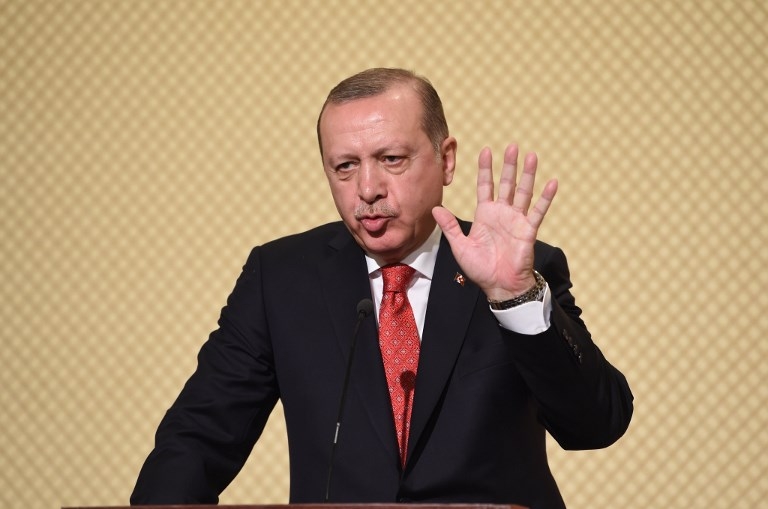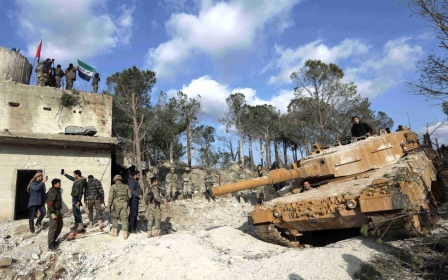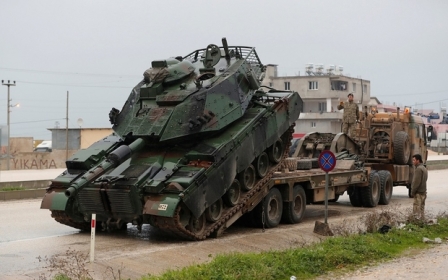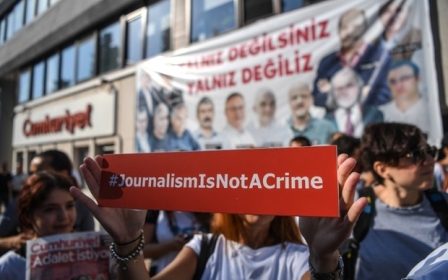Turkey detains top medical group members over criticism of Afrin offensive

Turkey on Tuesday detained all the top members of the country's main medical association, including its chief, after they criticised Ankara's offensive against Kurdish militia in Syria.
The arrests came after the Turkish Medical Association (TTB), which represents 80 percent of the country's physicians, issued a statement saying that conflicts lead to "irreparable problems" and that "war is a man-made public health problem".
The TTB ended its statement on Wednesday with the words: "No to war, peace right now."
Prosecutors swiftly launched a probe, after President Recep Tayyip Erdogan on Friday lashed out at the "so-called Turkish Medical Association" as "terrorist-lovers".
Erdogan again hit out at the group on Sunday, saying: "They are not intellectuals, they are a gang of unthinking slaves... They are the servants of imperialism."
Among those held was TTB director Rasit Tukel, state-run news agency Anadolu said.
The health ministry on Monday said it had filed a lawsuit seeking the removal of the 11 executive council members because they were "acting against the law".
Entire executive behind bars
Turkish troops and their Syrian rebel allies launched a brutal offensive against Kurdish militia in the enclave of Afrin in northern Syria on 20 January.
Ankara, which considers the Kurdish People's Protection Units (YPG) militia in Syria a "terror" group, has vowed to carry on and possibly expand the operation, despite international concern.
Turkey sees the YPG as the Syrian offshoot of the outlawed Kurdistan Workers' Party (PKK), which has waged an insurgency against the Turkish state since 1984.
'They are not intellectuals, they are a gang of unthinking slaves... They are the servants of imperialism'
- Turkish President Recep Tayyip Erdogan
Despite calls for restraint in Syria from the US and concern from the European Union, Turkey has stepped up its offensive in recent days, while threatening to further expand it and also cracking down on critics at home.
The Turkish interior ministry on Monday said 311 people including journalists and activists had been detained over accusations they were spreading "terror propaganda".
'Threats of violence'
The TTB confirmed to AFP that all its top members had been detained, but an association official who did not wish to be named said that little information was immediately available as the arrests had taken place in different parts of the country.
The TTB, which has more than 83,000 members representing 80 percent of physicians in Turkey, is the nation's leading medical association.
Turkish medics have played a key role in treating war victims in Syria, often making dangerous cross-border trips into a nation ravaged by seven years of war.
Rights group Amnesty International criticised the arrests, and said the TTB's head office had received a "large number of threats of violence by email and telephone" leading up to the detentions.
Amnesty's Turkey researcher Andrew Gardner said the TTB became a target for making a "completely legitimate reasonable" statement.
"This is completely irrational targeting of people for expressing their peaceful views, there is nothing that can justify these sorts of detentions," he told AFP.
Erdogan's spokesman Ibrahim Kalin last week warned the Turkish public and media to be wary of "lying, fake, distortive and provocative news, images and gossip".
But the TTB was not the only group to criticise the assault.
Over 170 former ministers, actors and writers signed a letter last week, calling for an end to war.
The letter was sent to all of Turkey's MPs including those from Erdogan's ruling Justice and Development Party (AKP).
Erdogan, however, called the signatories "traitors".
Middle East Eye propose une couverture et une analyse indépendantes et incomparables du Moyen-Orient, de l’Afrique du Nord et d’autres régions du monde. Pour en savoir plus sur la reprise de ce contenu et les frais qui s’appliquent, veuillez remplir ce formulaire [en anglais]. Pour en savoir plus sur MEE, cliquez ici [en anglais].




